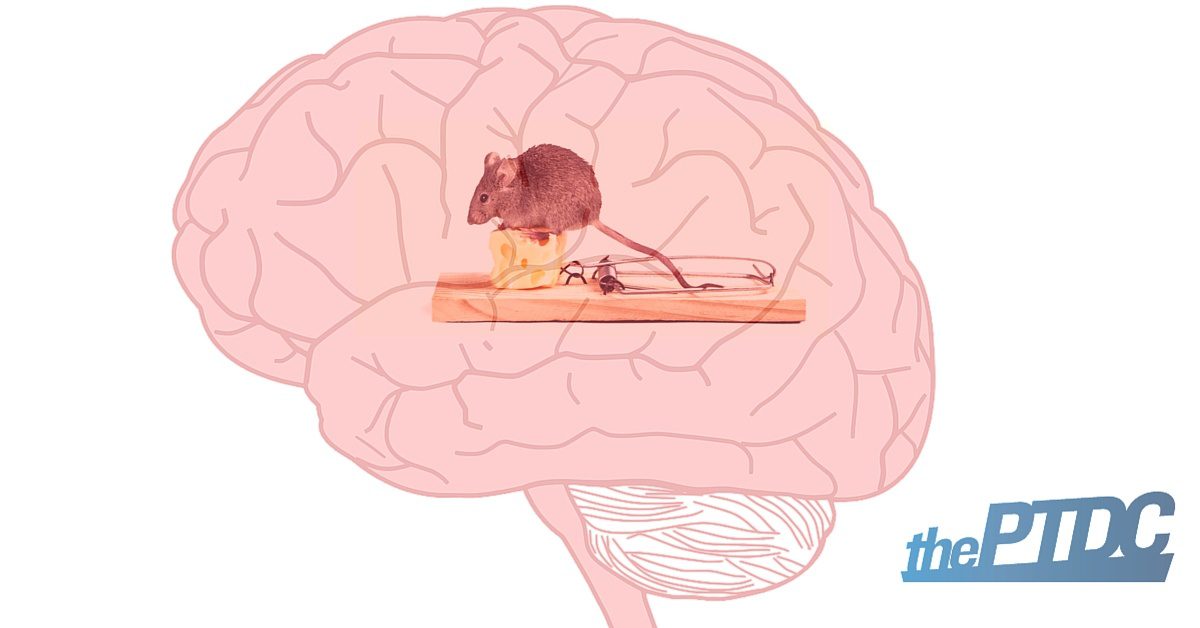One of the biggest battles facing personal trainers and coaches has to do with how our clients' brains work. We've all seen how our clients can spin an impressive array of excuses to keep from holding themselves accountable to their progress. We know these are loopholes in their logic that stunt their progress. Thus, with a better understanding of where their common excuses come from or their ways of thinking, we can help clients overcome these faulty rationalizations and get them on the path to more and better progress.
As coaches, our job isn't so much to call BS on our clients as it is to empower them to firmly, yet gently call BS on themselves. The first step is to create an awareness that these mindset problems exist and that they're very common. Here are the five most common "mind traps" that veer your clients off track, and what to do about them.
Client Mind Trap 1: "I'll start tomorrow."
We think we have infinite amounts of time to complete all of the things we want to accomplish. This, of course, leads your clients to the notorious "I'll start tomorrow" rationale. This stems from misconceptions about time.
Yummy cheesecake when they're trying to lose fat? Start the diet tomorrow. Get to the gym? Not when Netflix beckons.
This is the source of procrastination because your clients think they can always put something off to tomorrow. But remember: Every moment is an opportunity for your client to improve his or her health. Encourage your clients to catch themselves as soon as they think it can wait until tomorrow. Get them to remind themselves it can't.

Your clients need to recognize that this is a deceptive brain message. When they can recognize that they are starting to rationalize an unhealthy decision, they need to strike quickly and remind themselves that their healthy eating and their training are priorities, a part of their values system.
Client Mind Trap 2: "I can't focus on my fat loss goals because I'm too busy with work/family/hobbies."
Many of us tend to think of goals and many things in life as all-or-nothing or in black-and-white terms--a dichotomous thinking loophole. Some clients mistakenly feel that one area in their lives is so dominant that they can't "fit" in gym time or make better eating choices into their schedules.
Over my many years of coaching, I've seen people who work 70 hours a week with families, and they're committed to their fat loss goals; and I've seen people who don't work at all and have minimal other responsibilities who don't succeed. All I'm saying here is that it's possible to juggle with the right shift in mindset.

To help your clients, remind them that this is about managing priorities, not time.
Be empathetic to the fact that your clients' lives are busy, but encourage them to think more about calibrating expectations, rather than getting into a "false choice" trap, where they think they have to choose either for or against fitness. Be honest in that they will have to make time for their healthy lifestyles. Fat loss and improving your health do not have to dominate their time, but they will have to see where they can fit them in. And yes, they may even have to cut back on other activities that don't promote better health.
Client Mind Trap 3: "Today is a special day."
When we want to make an excuse to overindulge, we justify it by being extra liberal about the definition of "special occasion". But there's always going to be a "special occasion" if you think about it: there's not a week that goes by, where a family/friend/coworker is celebrating a birthday, a retirement, wedding, bar mitzvah, christening, and so on.
The truth is we can turn just about any day into a celebration.

The "today is special" loophole simply provides way too much lenience.
First and foremost, emphasize to your clients that this isn't about denial of pleasurable foods. It's about being far more selective. Encourage clients to adopt one mindset and one strategy. For example, the mindset here is to avoid automatically associating celebrations, occasions, or special days with indulgence.
The strategy, therefore, is to have what researcher Roy Baumeister calls an "implementation intention", or a specific plan of picking your spots when it comes to your indulging. In other words, it helps to know exactly how you are going to navigate your celebrations. This may be a small slice of cake that you eat slowly at your mother's birthday party or two drinks at your friend's barbecue, but passing on the shortbread cookies that someone brought in for your coworker's retirement.
Clint Mind Trap 4: The clear, predictable path trap.
When we make plans for the future, we seldom plan for distractions. We assume a perfect-world scenario, free of distractions and diversions. Our clients are no different when they first come to us. They are convinced that they've got this because motivation and discipline won't be problems.

In Marshall Goldsmith's book Triggers, he notes that in our day to day lives there is a high probability of low probability events. We don't plan for low probability events because they are just that-under the radar and unlikely to happen. However, the odds of at least one of these many events occurring is high.
With clients, there needs to be a fine balance in your language here as a trainer. Acknowledge and applaud your clients' enthusiasm, but be honest about the road ahead. Plant the idea that there will be distractions and derailments. Tell them that the most important things to recognize are that a) it's not a big deal, and b) have them think about how they will manage this differently in the future.
Client Mind Trap 5: The YOLO fallacy.
You only live once, right? Indulge while you can! Seize the day! Life's too short to deprive yourself!
In her book Better Than Before, Gretchen Rubin refers to this as the "fake self-actualization loophole"; it's a justification grounded in a skewed perception of being deserving/entitled to an indulgence. As a coach, I'm against recommending my clients to eliminate any particular food or food group. As a matter of fact, I encourage clients to find ways to keep their favorite foods in their diets. Remind them that although it's a pervading mentality that we must partake to the fullest extent at every opportunity, it can quickly take them further from their goals.

Once our clients learn to recognize these deceptive messages from the brain, they will form new connections, and therefore, new paths and strategies. When this happens, you've help set them up for a journey of better health.
Other trainers found these articles helpful:
- What is Self-Determination Theory? By Stevan Freeborn
- Motivating General Population Clients By Jonathan Goodman
- Mindset Is More Important For Fitness Success Than Programming By Ben Hessel
Photo Credit: Image 1 by Vic, Yolo Image by Nan Palmero, distraction on road image by Hamed Saber









